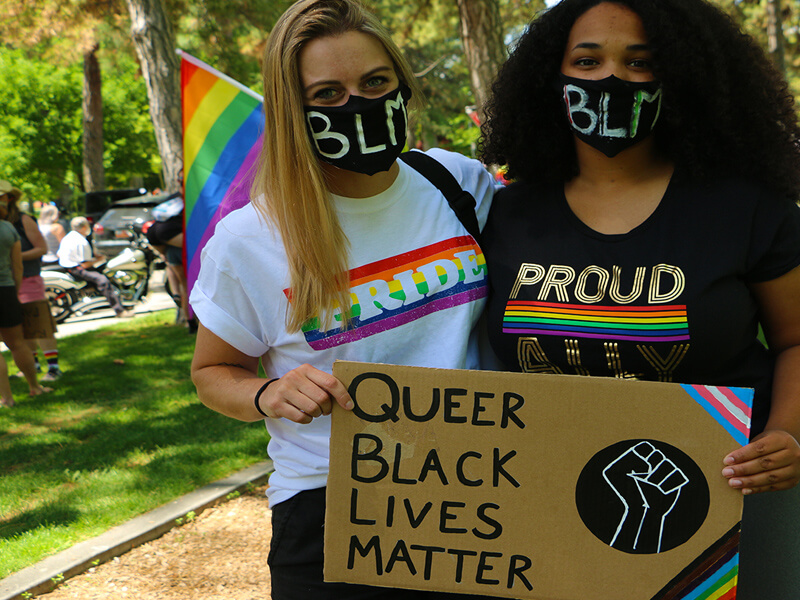Hard to Reach Populations

Hard to Reach Populations
Groups of the population that are difficult to reach or involved in research are sometimes referred to as “hard-to-reach” populations. These groups are commonly disadvantaged, disenfranchised and may include immigrants, newly arrived residents or those living in vulnerable social and/or economic situations. Hard-to-reach populations are often difficult for researchers to access cost-efficiently in large numbers necessary for statistically powerful study designs. By training other faculty on how to conduct research with hard-to-reach populations, experts at MHDI have effectively helped to increase the amount of health research conducted at UNL with marginalized and disadvantaged groups. MHDI researchers can engage new analytic methodologies to estimate the size and structure of hidden populations. To learn more about our current projects and get to know our Hard to Reach Populations Research Coordinator, click on the links below.

Patrick Habecker
Assistant Research Professor
430 Oldfather Hall
Lincoln NE 68583-0806
phabecker2@unl.edu
Immigrant + Refugee Health

Immigrant + Refugee Health
Immigrants and refugees have diverse backgrounds and migration experiences, as well as unique health risks, perceptions, and practices. Social and structural threats to health equity include exposure to trauma and political violence, fragmented social support networks, communication challenges and lack of linguistically- and culturally-sensitive care, incongruent expectations or preferences for disease prevention and management, and experiences of racism, discrimination, and xenophobia, including in clinical settings. Researchers at MHDI are working to understand culturally meaningful health perceptions and practices, to examine and address the modifiable social and structural determinants of health, and to enhance the health and wellbeing of immigrants and refugees through multi-disciplinary, community-partnered health promotion research and interventions. To learn more about our current projects and get to know our Immigrant and Refugee Health Research Coordinator, click on the links below.

Julie Tippens
Assistant Professor
Louise Pound Hall (LPH) 239.1
Lincoln NE 68583-0806
402-472-2957
jtippens@unl.edu
Latinx Health

Latinx Health
Latinx populations make up the largest and fastest growing minority group in the U.S. Health disparities impact Latinx folx in the U.S. and are influenced by sociodemographic, behavioral, social, and societal factors including language and cultural barriers, lack of access to health care, and discrimination. To tackle these issues, researchers at MHDI are identifying the mechanisms influencing health disparities and exploring and implementing multilevel interdisciplinary projects to address them. To learn more about our current projects and get to know our Latinx Health Research Coordinator, click on the links below.

Virginia Chaidez
Asst Professor - Nutrition & Health Sciences
Courtesy Assistant Professor - Communication Studies
Leverton Hall (LEV) 104A
Lincoln NE 68583-0806
402-472-3716
vchaidez2@unl.edu
Stress + Mental Health

Stress + Mental Health
Mental health is a critical and frequently unaddressed matter in communities of color, sexual and gender minority populations, rural, low income, and unstably housed individuals. These populations are particularly at a higher risk for stress and mental health disorders. People from minority populations have higher exposure to chronic stressors such as discrimination, as well as higher risk for traumatic stressors such as violence, leading to greater wear and tear on the body’s stress systems (aka allostatic load). Additionally, these individuals may experience symptoms that are undiagnosed, under-diagnosed or misdiagnosed for cultural, linguistic or historical reasons. Each of these factors can lead to significant disparities in both mental and physical health that ultimately affect quality of life and life expectancy. Researchers at MHDI are currently working on multiple projects that examine the barriers to accessing mental health resources, building up minority population’s resilience and social support systems, understanding the long-term adverse effects of unaddressed stress, and developing new ways to measure stress response and mental health in hard-to-reach populations.

Tierney Lorenz
Assistant Professor - Psychology
Stadium East (STE) C66
Lincoln NE 68583-0806
402-472-3721
tierney.lorenz@unl.edu
Network Science

Network Science
Network science (NS) and social network analysis (SNA) are emerging fields that have become a key analytical lens for scientists studying health disparities. Networks and network structure has been shown to influence everything from housing the homeless to community stress levels to adolescent substance use. In turn, attempts to better understand complex health issues have helped push network analysis in new directions. At MHDI, researchers are actively developing the capacity to collaborate using innovative network science methods to address health disparities and minority health. MHDI researchers can engage new technologies to collect and analyze longitudinal network data from cohorts of interest, including the ODIN cellphone platform (http://odin-software.com) and the SNAPT tablet platform (http://snapt-software.com). To learn more about our current projects and get to know our Network Science Research Coordinator, click on the links below.

Patrick Habecker
Assistant Research Professor
430 Oldfather Hall
Lincoln NE 68583-0806
phabecker2@unl.edu
Racism + Discrimination

Racism + Discrimination
Experiences and perceptions of racism and discrimination are significant predictors of a range of mental and physical health outcomes. Whether overt acts of discrimination, violent actions toward individuals and communities, or more subtle, sometimes implicit enactment of bias (i.e., microaggressions), experiencing racism and discrimination can affect psychological (e.g., heightened anxiety, depression, and physical health response (e.g., hypertension) and health-related behaviors. Researchers at MHDI are making concerted efforts to apply knowledge and insights from the vast research that has already been done on racism, discrimination, and health on (a) understanding the experiences of discrimination and racism in marginalized communities, (b) identifying the structuring and persistence of discrimination and racism within institutional and community settings, and (c) identifying social network factors (i.e., personal and professional relationships) and coping mechanisms that potentially buffer negative consequences of discrimination and racism. In collaboration with other MHDI research areas, our goal is to enhance our understanding of how discrimination and racism shape health outcomes and impacts health inequities while identifying malleable practices that can reduce the negative impact of these experiences.

Jordan Soliz
Leland & Dorothy Olson Chair Professorship - Communication Studies
Louise Pound Hall (LPH) 359
Lincoln NE 68588-0329
402-472-2070
jsoliz2@unl.edu
Rural Health

Rural Health
People living in rural areas experience significant health disparities including geographic isolation, lower socioeconomic status, limited access to healthcare including health specialists and subspecialists. These inequities are intensified as rural residents are often also underinsured or uninsured. To address these rural health disparities, researchers at MHDI are developing innovative interdisciplinary projects to ameliorate these inequities. To learn more about our current projects and get to know our Rural Health Research Coordinator, click on the links below.

Angela Palmer-Wackerly
Associate Professor - Communication Studies
Louise Pound Hall (LPH) 351
Lincoln NE 68588-0329
402-472-2070
apalmer-wackerly2@unl.edu
Sexual + Gender Minority Health

Sexual + Gender Minority Health
Sexual and gender minorities (SGM) often experience disparities in mental and physical health that are attributed to structural discrimination, such as policies that do not promote equal rights, and interpersonal–intrapersonal processes. Sexual and gender minorities also experience stigma at significantly higher rates than cisgender, heterosexual individuals. To eliminate health disparities experienced by sexual and gender minority individuals, researchers at MHDI are looking at ways to better understand and improve health disparities among LGBTQAI+ people. Bridging the fields of psychology, biology, sociology, epidemiology, and public health, researchers at MHDI conduct research and are developing new, evidence-based, affirming health interventions to improve adverse outcomes. To learn more about some of our current projects and get to know our Sexual + Gender Minority Health Coordinator, click on the links below.

Kathryn Holland
Assistant Professor - Women's and Gender Studies
Assistant Professor - Psychology
Burnett Hall (BURN) 225
Lincoln NE 68588-0308
402-472-3721
kholland4@unl.edu